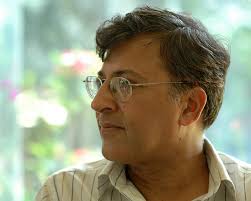Beijing/Washington/Islamabad, September 28 (NIA): While China and the United States on Wednesday called on Pakistan and India to solve their differences over Kashmir through dialogue rather than violence and war, senior columnists in Pakistan and India have suggested ways to douse the fires.
China’s Deputy Foreign Minister Liu Zhenmin told Pakistani envoys on Kashmir in Beijing that while China values Pakistan’s position on Kashmir, “ China hopes that Pakistan and India will strengthen channels for dialogue, appropriately handle any differences, improve bilateral relations and together protect the region’s peace and stability.”

China has long been a strong diplomatic, military and economic supporter of Pakistan, and the two call each other “all-weather friends”. Their ties have been underpinned by wariness of their common neighbor, India, with which China fought a brief but bloody border war in 1962.
Tensions between India and Pakistan rose on Tuesday as India’s Prime Minister Narendra Modi said he would boycott the South Asian summit to be held in Islamabad in November and reduce irrigation water supply to Pakistan. Islamabad warned that it would treat the latter threat as “an act of war”.
US Stand
In a press briefing at the White House, Press Secretary Josh Earnest urged India and Pakistan to “resolve the differences peacefully and through diplomacy”.
When asked what the US think of the current situation in the region, now that “India has pulled out from regional SAARC summit in Islamabad later this year”, Earnest said: “The United States has continued to encourage India and Pakistan to find a way to resolve their differences peacefully and through diplomacy. And we have condemned violence, particularly terrorist attacks.

“We continue to be hopeful and encouraging of both sides to try to find a way to resolve their differences and to reduce their tensions through diplomacy and without resorting to more violence.”
Suggestions To Bring The Temperature Down
Earlier, writing Dawn columnist Pervez Hoodbhoy offered some suggestions to bring the temperature down.
“Although the initiative has once again come from the Kashmiris themselves, there is little that Pakistan can do to help them. This may not be what some in Pakistan’s military want, but the choice is almost not there. A fence now runs the entire length of the Pak-India border and hi-tech surveillance and night-vision equipment has made infiltration difficult and dangerous.”
“The indigenization of the Kashmir movement, increased difficulty of penetration, and the grave domestic and international political costs of using proxies suggests a new path for Pakistan. It can make a virtue out of necessity by cracking down upon Kashmir-oriented militant groups still operating from its soil. Such groups have turned out to be a menace to Pakistan’s society and armed forces, apart from taking legitimacy away from those fighting Indian rule.”
“No one sees the Kashmir dispute having a solution in the foreseeable future. Everything has been tried: war, repression, elections, and inducements. The only question at present is how to prevent a bad situation from spiralling out of control. Lest thousands more die, it is now time for calm thinking, letting passions subside and moving ahead. Rather than look for ultimate solutions now, the present needs to be managed.”

What India Can Do
Reflecting the viewpoint of Indian liberals, the respected Indian journalist Prem Shankar Jha has three eminently sensible suggestions:
- Indian security forces should declare a unilateral cease-fire, delete police’s history sheets and give all those on them a respite from fear.
- Fully support Kashmir Chief Minister Mehbooba Mufti in her efforts to heal the wounds inflicted on the wounded Kashmiri psyche.
- Equip the police with suitable technology to deal with stone throwers and others without the use of lethal force.
Jha’s point of view may have few takers in Modi’s India. But thoughtful Indians must ask why their country should care.
Surely, if India considers Kashmiris to be its citizens then it must treat them as such, not as traitors deserving bullets. Else it should hand Kashmir over to Kashmiris — or Pakistan. Indeed, its efforts to create a secular state and have religious harmony — and to become the third biggest economy in the world by 2050 — could all come to naught if Pakistan-India relations boil over.
Pakistan and India cannot afford the next decade to look like previous ones. Their conflict is like a cancerous growth, a malignant organism growing unchecked.

What Pakistan Can Do
The current gloomy situation offers just the slightest sliver of hope: the absence of a substantive Pakistani role in this new Kashmir uprising. This could be seized upon to break the impasse in Pak-India relations. Instead of Prime Minister Nawaz Sharif lamely repeating “Kashmir banega Pakistan” — and Sushma Swaraj angrily retorting that this will never happen — the two countries should seek dialogue, not confrontation.
Pakistan’s proxies led to India’s looking for proxies in Pakistan, which Pakistan now complains about. Both ways, this interference must stop.




























































